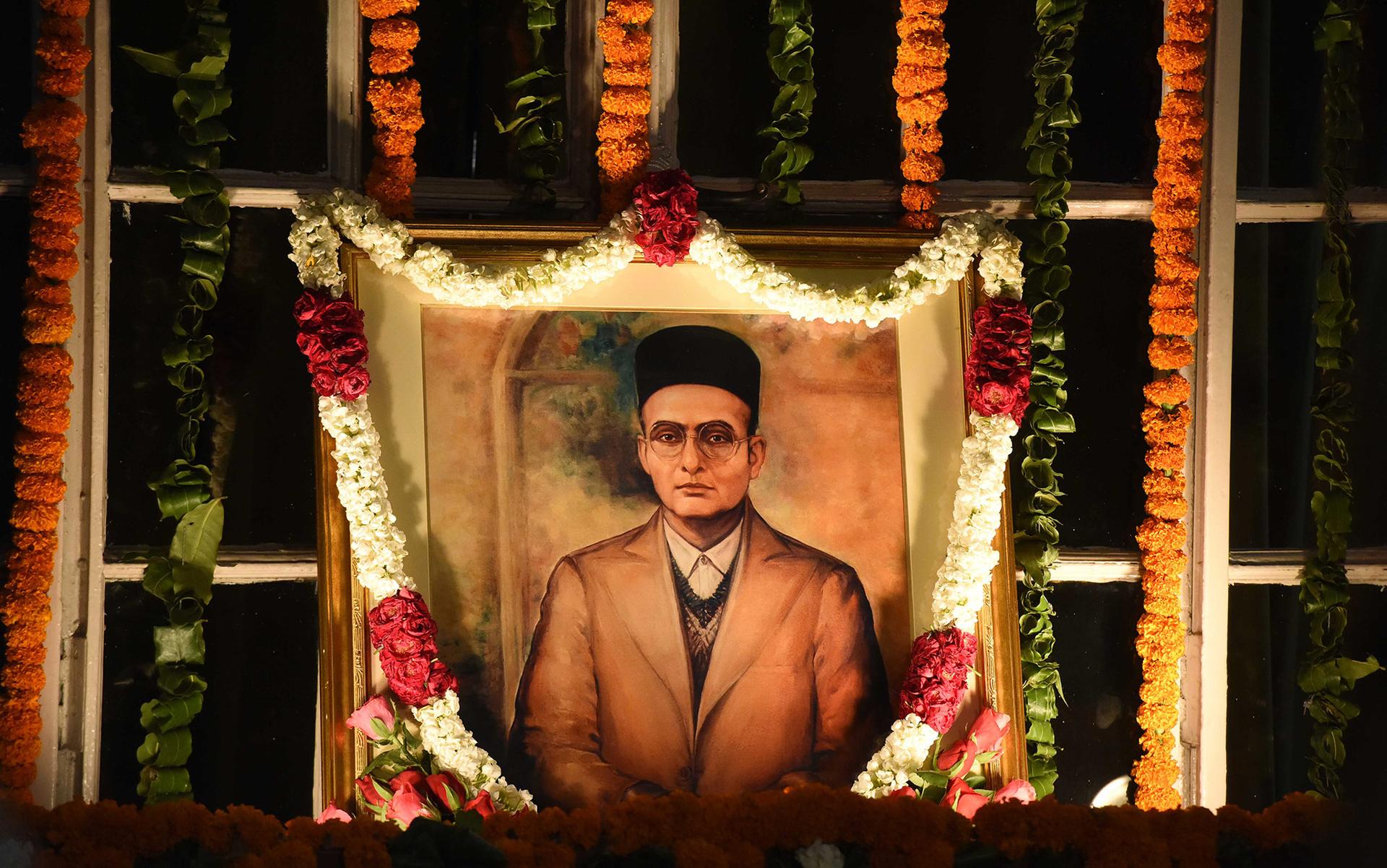by MIHIR DALAL

To understand Narendra Modi’s India, it is instructive to grasp the ideas of the Hindu Right’s greatest ideologue, the world of British colonial India in which they emerged, and the historical feebleness of the present regime.
Vinayak Damodar Savarkar was a polymath who read law in London, enjoyed Shakespeare, admired the Bible, wrote important historical works, and became an accomplished poet and playwright. His lifelong obsession was politics.
Savarkar took up political activity in his teens and became a cherished anti-British revolutionary. While serving a long prison sentence for inciting violence against the British, he transformed into a Hindu supremacist bent on dominating Indian Muslims. His pamphlet Essentials of Hindutva (1923), written secretively in jail, remains the most influential work of Hindu nationalism. In this and subsequent works, he called for Hindus, hopelessly divided by caste, to come together as one homogeneous community and reclaim their ancient homeland from those he considered outsiders, primarily the Muslims. Savarkar advocated violence against Muslims as the principal means to bind antagonistic lower and upper castes, writing:
Nothing makes Self conscious of itself so much as a conflict with non-self. Nothing can weld peoples into a nation and nations into a state as the pressure of a common foe. Hatred separates as well as unites.
Savarkar has proven prescient if not prescriptive. Over the past four decades, the Hindu Right’s violence against Muslims has indeed helped Modi’s Bharatiya Janata Party (BJP) to cement a degree of Hindu political unity long considered unattainable.
Some of Savarkar’s views on Hindus and their religion embarrass the Right. An agnostic, Savarkar declared that Hindutva – his construction of Hindu nationalism – was bigger than Hinduism, the actual religion of the Hindus. Later in life, he railed against Hindus and urged them to become more like Muslims (or his perception of them). Writing about Muslims in the medieval period allegedly raping and converting Hindu women any chance they got, Savarkar characterised it as ‘an effective method of increasing the Muslim population’ unlike the ‘suicidal Hindu idea of chivalry’ of treating the enemy’s women with respect. He wrote disparagingly about cow worship and other Hindu practices, and refused to discharge the funeral rites for his devout Hindu wife. Although Savarkar’s Hindutva helped inspire the launch of the BJP’s parent organisation, Rashtriya Swayamsevak Sangh (RSS), a century ago, he was disdainful of its decision to avoid direct political participation. ‘The epitaph for the RSS volunteer will be that he was born, he joined the RSS and he died without accomplishing anything,’ he reportedly said.
Until Modi became prime minister in 2014, Savarkar was known to few Indians, and those few knew him as a minor freedom-fighter. Since then, the BJP-RSS have placed Savarkar at the centre of their efforts to rewrite Indian history from a Hindu supremacist perspective. Today’s BJP positions Savarkar as a nationalist icon on a par with Jawaharlal Nehru and Mahatma Gandhi, if not greater. If Savarkar’s ‘repeated warnings against the Congress’s appeasement politics’ had been heeded, India could have avoided Partition, the separation of Pakistan from India, writes Mohan Bhagwat, the RSS chief.
Aeon for more